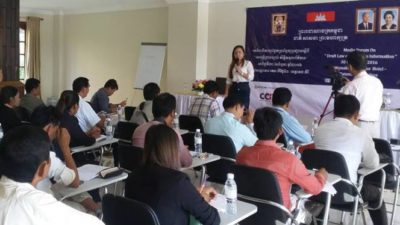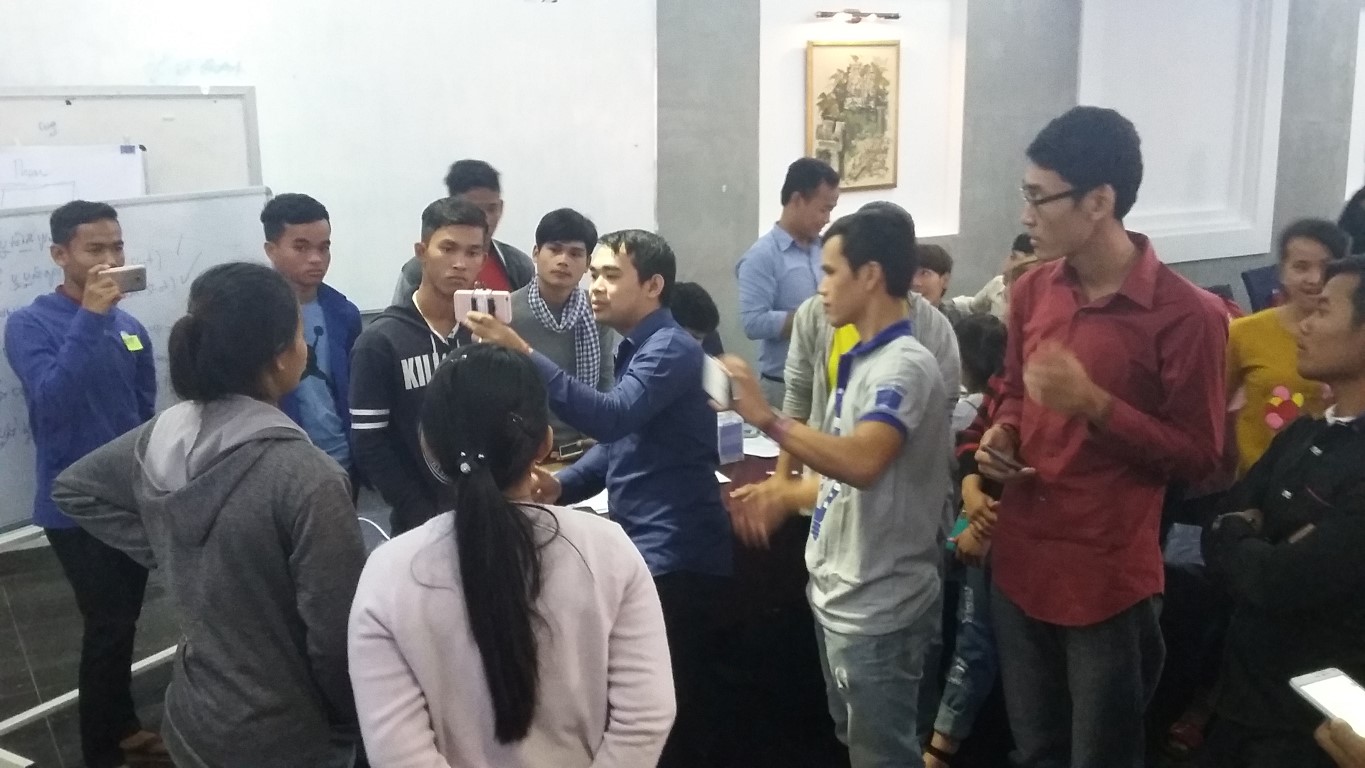The Ministry of Information of Cambodia is drafting a law on access to information. The purpose of this draft is to assure that access to information are assured by law to maintain accuracy and transparency.
While the draft law is still in progress waiting for a series of constructive debates among the stakeholders, particularly the journalists, the advertisement of the draft law remains limited, given the facts that not many journalists are aware of this draft law.
More critically, the draft law still comes to exist along with regulations and legal punishments creating the atmosphere of fear among those giving the sources of information and reporters writing news reports. Having been convinced that addressing the challenges and getting all the relevant stakeholders involved in the discussions are essentially important before the law is passed, Cambodian Center for Independent Media (CCIM) engaged in organizing forum with media workers to discuss the draft law and solicit their suggestions and recommendations to the draft law with funding support from the United Nations Educational, Scientific and Cultural Organization (UNESCO) – Cambodia Office.
CCIM is a member of the technical working group organized by the Ministry of Information to review and finalize the draft of access to information law.
The first media forum was held in Phnom Penh on 22 September 2016, followed by another forum held in Sihanoukville on 28 October 2016. On 30 November 2016, the third media forum was held in Ratanakiri, a remote province located in the northeastern part of Cambodia where accesses to information remain the critical challenges for journalists, attended by 23 journalists.
CCIM will be organizing its last media forum in Siem Reap on December 19, 2016.
Even though the draft law was initiated long time ago, not many journalists are well-informed of that. Reading the draft is even unthinkable. Mr. Ket Sothy, a correspondent of Southeast Asia TV (SEA TV) in Ratanakiri, said that he was surprised to hear that the Ministry of Information is drafting the law admitting that he had never heard anything about the draft law until the day he attended CCIM-organized workshop.
The same is true for Mr. Ros Saly, a reporter of Koh Santepheap, one of the most popular daily newspapers published in Khmer. While Apsara Net TV reporter Long Sambo argued that he used to hear the draft law, the first time Sambo actually had a chance to read the draft law was only when he attended the workshop run by CCIM.
It is unclear whether the limited awareness of the draft law is caused by journalists’ personal ignorance or by less advertisement. CCIM, however, would like to urge all stakeholders to make more concrete efforts to raise awareness of the draft law, so that more journalists who are the real practitioners will actively participate in the drafting process.
Equally important, in addition to limited awareness of the draft law, the chapter of regulations and legal punishment indeed poses a major threat to freedom of expression and freedom of press.
From article 25 to 29 in Chapter 7 of the draft law, as Ros Saly pointed out, both people giving sources of information and reporters will face legal action if the information cannot be verified. In other words, any news report with no verified sources will only invite legal actions from the government.
These articles, according to Saly, have nothing to do with promotion of freedom of press except creating the environment of fear allowing people committing illegal things to prevail. While approaching authorities to get reliable and verifiable sources of information is useful to avoid legal actions, Mr. Ket Sothy from SEA TV complained that it is time consuming job simply because reporters are required to submit a written request in advance. “There should be a certain clause state clearly that spokesperson or local authorities must cooperate with reporters to provide sources of information at anytime reporters approach them,” said Ket Sothy.
As a key stakeholders directly involved in the drafting of the Public Information Law, CCIM has noticed that more time is badly needed for stakeholders to discuss and consult with legal experts. According to Mrs. Hok Narin, CCIM Project Manager who directly organized and oversaw the workshop, said “Many provincial reporters have limited knowledge in terms of legal aspects and we understand it is a serious challenge for them.”
“What they can raise are the challenges they (reporters) have experienced in their daily life only,” said Mrs. Narin, adding that “we expect them not only to get involved in a constructive discussion, but also help promote or raise as much public awareness as possible, so that we can make sure the upcoming law will be of common interests rather than putting the media on radar.” (Sek Sophal)


